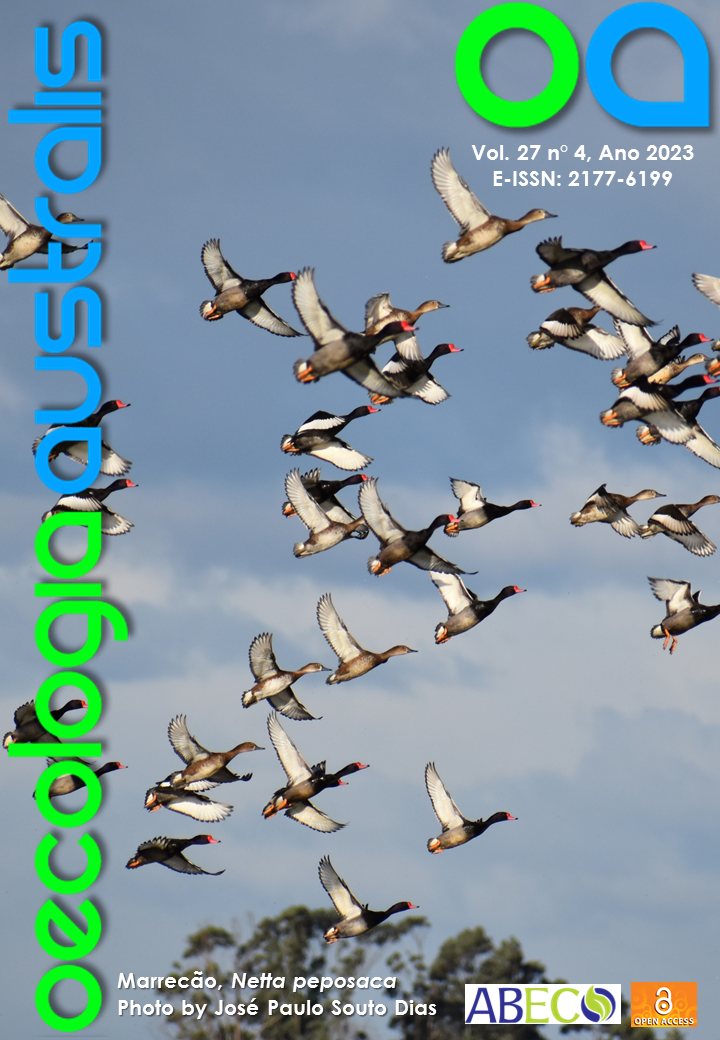ENVIRONMENTAL AND SPATIAL FACTORS ARE POOR PREDICTORS OF FISH BETA DIVERSITY IN CERRADO STREAMS
DOI:
https://doi.org/10.4257/oeco.2023.2704.04Keywords:
Metacommunity, Dispersal, Environmental heterogeneity, Dissimilarity, HeadwatersAbstract
Beta diversity, the spatial or temporal variation in community structure, is a central theme
in community ecology. In this study, we evaluated the explanatory power of environmental and spatial
variables in predicting fish beta diversity. Using data from Cerrado streams, we first partitioned fish
beta diversity into three components using both presence-absence (total, turnover, and nestedness) and
abundance data (total, balanced changes in abundance, and abundance gradients). Then, we evaluated
the individual influences of environmental and spatial variables on each of these components. Our results
showed that environmental and spatial variables explained significant fractions of variation in fish beta
diversity. However, most of the variation in total beta diversity and its components remained unexplained.
Considering presence-absence data, significant fractions were obtained only for total beta diversity. For
this type of data, spatial variables were more important than environmental variables. Abundance-based
analyses showed that both total beta diversity and its components (balanced changes in abundance
and abundance gradients) were explained by environmental and spatial variables. With abundance
data, environmental and spatial variables were similarly related to total beta diversity and balanced
changes in abundance, while spatial variables were the sole predictors of the abundance gradients.
Despite methodological and theoretical advances in beta diversity studies, we still need to seek relevant
environmental, spatial, temporal, and biological data that explain beta diversity patterns in streams.


